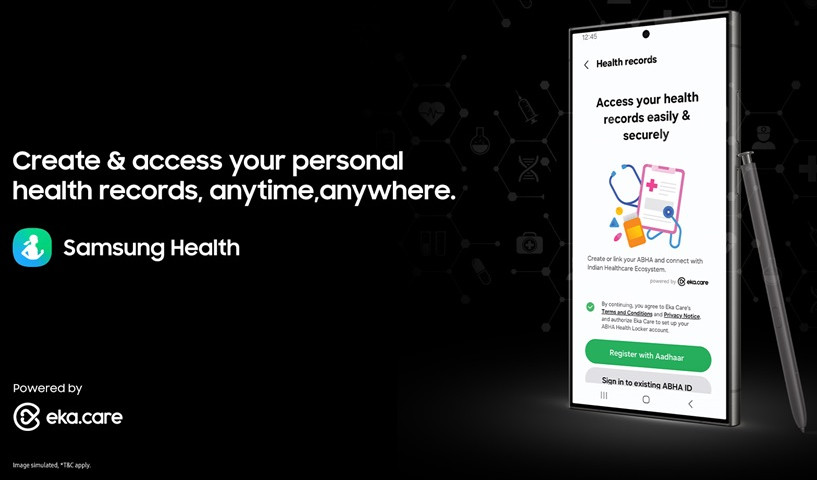
3 Views | 7 min | Published On: December 27, 2024 Last Updated: December 27, 2024
What is common in Alexa, Calm and Shazam? Behind the usual custom mobile app development services – they all are apps, they come with a user base of billions and are multi-million brands.
The answer lies in the technology they operate on – AI for mobile app development. After much ado, artificial intelligence has stepped out from the offices of Amazon and IBM and tapped into the consumer lives through the devices they are always active on, Mobile. You may ask – “How does AI help here”? Big disclaimer, it can’t take you from ground to moon yet, but it can speed up the first steps of mobile app development services.
By leveraging AI subfields like Deep Learning, Machine Learning and Predictive Analytics, online businesses are taking the game of personalization a level up, in terms of features as well as marketing. Indeed, the benefits of these technologies are so inevitable that next-gen apps have become a way for companies to chart the new normal.
Don’t Miss This – Discover How AI is Changing the Game for Businesses with Real Success Stories
And this is just the tip of the iceberg.
Here are 8 Use Cases of AI for Mobile App Development
1.Automated Reasoning
Simply put, this feature is an amalgamation of science and the art of making apps that leverage logical and analytical reasoning to address challenges. Automated reasoning is the unsung hero of custom mobile app development services that help machines prove theorems, solve puzzles and win chess matches. It’s with this feature that AI-enabled devices keep count of patient influx in the hospital, keep track of stock trading and play jeopardy.

Numerous brands have incorporated this feature. One such customer-loved brand is Uber. This taxi-hailing app uses logical reasoning to optimize the driver’s routes and help drivers reach their destination quicker. Moreover, the reasoning algorithm analyzes voluminous data collected from the data who have used the routes – both time and direction-wise.
2.Security Enhancements
Custom mobile app development services are getting more sophisticated with each passing day, but so is the nature of cyber threats. In Q3 2024, Kaspersky blocked 6.87 billion mobile malware attacks on mobile devices – a huge surge from 2023’s 33.8 million. This mirrors the need for heightened security features on mobile apps.
Though AI has its fair share of user privacy and data security challenges, we can’t turn a blind eye to the solutions it brings, including:
- Advanced Algorithms: AI algorithms track user interactions and network traffic to identify any unusual anomalies or patterns that indicate a security breach. For instance, if there’s an unexpected rise in login attempts from a different IP address, AI can temporarily deny app access until a user identifies their identity.
- Behavioural Biometric: When using AI for mobile app development, behavioural biometrics is an inevitable element. It helps authenticate users based on unique interaction patterns, like typing speed and swipe gestures. Behavioural biometrics offers an added security layer by analyzing deviations from typical user behaviour, indicating unauthorized access.
- Biometric Authentication: AI improves the precision and security of biometric authentication in custom mobile app development services through fingerprints, voice patterns or face features. For example, advanced AI models can easily identify the difference between a real face and a photo in facial recognition systems.
These artificial intelligence features improve mobile app security by offering quick, proactive and adaptive security features. And, when we talk about adaptive, remember that AI is continuously evolving, meaning its security solutions will just keep getting smarter and enhanced.
3.Recommendation Services
This is undoubtedly, the most effective and simplest AI use case in mobile apps, something that is seen almost in every mobile commerce app.
Moreover, one of the primary reasons behind the app’s failing within a year of its launch is not being able to offer relevant content that would keep users engaged. Regardless of how frequently you add new products on your site unless users see the “customers who bought this also brought” option, the odds are you will continue seeing a low app session and conversion rate.

By keeping track of user’s choices and utilizing this data in your learning algorithms, mobile apps suggest the recommendations, which the users are most likely to be appealed to shop. It is among the evident revenue streams for eCommerce apps like Netflix and Amazon. Although artificial intelligence is mostly leveraged by the mCommerce and entertainment industry, any business which indulges in cross-selling or upselling of content can use AI features for custom mobile app development.
4.Understanding Behavior Patterns
These days, platforms have the ability to learn user’s buying behaviour so as to make the upcoming session much more seamless. For instance, the half-bot hotel booking service, the half-human, Snaptravel uses NLP and machine learning to have real-sounding conversations with the users, one that caters for their needs. In cases where bots get stuck while interacting, a human team takes over and teaches the bot how to manage the situation next time.

Another most seen example where AI learns users’ behaviour and then utilizes the information is fraud detection. Artificial intelligence pattern-detection mechanism analyzes credit card details and purchase history and when this all happens, it uses the learning to check if someone has made a purchase recently that is not in coherence with the purchase you make.
5.Sentiment Analysis
Imagine how amazing it would be to all ears everywhere. By tracking what is talked about in your app everywhere – on the stores, on forums, on social media, or even on messaging platforms, AI’s sentiment analysis feature provides you with an insight into how users are interacting with your app, and with what competitors users are comparing you, and much more.

Sentiment analysis offers you clear and concise information on what features need to be added and which features need to be removed from your array of features in custom mobile app development. Besides, you’ll get the information, like – which platform they prefer, at what time, and for what purpose related to your user’s behaviour across different platforms.
For example, an app like Aide has topic identification and sentiment analysis potential. They help support teams that get a high volume of customer correspondence prioritizing urgent complaints with negative sentiments. This helps prevent any potential damage to a brand’s reputation. Although Aide is not exactly a mobile app, still it’s a great feature to establish when developing your mobile app.
6.Adding Predictiveness to User Life
The much talked about subfield of artificial intelligence “machine learning” is what comes in handy when it’s all about predictive analysis. Imagine you have an on-demand home service app, now by using predictive analytics, you can easily roll out notifications to your users that it’s time for gardening and they should book their service.
In layman’s terms, predictive analysis is what period tracking app or forecast app is based on. In case you are taking baby steps, you can use this feature in your custom mobile app development service in two ways – either base the complete app on predictive analysis or leverage it to keep rolling out new products or discount information, to keep users engaged. Furthermore, you can roll out an extension in your messaging feature, that makes use of a neural network to send automated replies, same as what Google does. If you are feeling overwhelmed with several options, contact your mobile app development service partner for some clarity.
7.Personalization that User’s Love
Have you ever thought about how some on-demand delivery apps offer you a discount message right around the time of your usual order placing time? Or how is it that your favourite item is suggested at the time you like to eat? It’s all because of Artificial Intelligence.

Plus, one of the biggest advantages of having AI for mobile app development is that it offers the brands complete access to the user location of device usage data – the time when they are active, the type of app they use, people they talk to the most, the platform they visit the most, etc.
So, by leveraging this information, companies offer discounts in their app to some while providing cashback to others. AI in mobile app development services allows brands to uphold the game of personalization, thus helping redefine their CRM model.
8.Dynamic UI
Using artificial intelligence in custom mobile app development services brings a new level of flexibility and adaptability to dynamic UI. Unlike static interfaces, whose outline and content are the same across the board, dynamic user interfaces adjust and address user preferences in real-time. This allows them to provide each user with a more engaging and personalized experience.
These days, social media apps, news mobile apps, and e-commerce platforms typically have dynamic user interfaces. For example, Google News modified the layout and displayed content based on the user’s location, reading habits and ongoing events. If a user is travelling, Google News adapts to that too. You get recommendations for local news and updates from your travelling destination.
Several AI-enabled low-code or no-code platforms available today enable developers to build dynamic UIs with minimal manual coding. These tools offer visual design interfaces and pre-built elements that help in easily creating dynamic and user-centred experiences. Not to skip, this speeds up app development and customization and minimizes app development costs.
Future of AI in Mobile App Development Services
Now that you understand the mobile technology landscape, the pressing question is what the future of AI-driven mobile apps looks like.
Let’s have a look.
1.Deep Learning Models and Personalization
Mobile apps like Duolingo and Netflix are already leveraging deep learning to personalize their content. However, we hope for deep learning models to continue enabling even more advanced personalization features in mobile apps. In essence, hyper-personalization will become the new constant for mobile apps.
2.Secure Mobile Payments and Fraud Detection
As digital wallets and mobile banking are gaining momentum, utilizing AI in custom mobile app development services to ensure secure and protected payments is getting more critical.
Although not particularly a trend, considering the security and bias concerns AI constantly faces, we will be seeing an inclination towards more transparency and accountability to gain users’ trust. As a result, we are expecting a resurgence of Explainable AI, aka XAI.
XAI establishes specific techniques to make sure any decisions made or outcomes can be easily traced and explained. Also, it makes it easy to check for precision and build trust. This technology is inescapable since AI phones are gaining traction among key manufacturers like Samsung and Apple who continue to integrate more advanced AI features for custom mobile app development.
Recommended – Discover What Explainable AI is and Why It’s Important
Finally…
AI is not changing the game for mobile apps, it’s the driving force behind how businesses engage, innovate and thrive.
By integrating AI-powered features like personalization, predictive analytics, and automation, businesses can deliver seamless experiences that captivate users and simultaneously boost engagement. As mobile apps evolve, staying ahead with a mobile app development company means embracing the potential of AI to not only meet user expectations but exceed them.
Ready to take your app—and your business—to the next level? Let’s make it happen.








